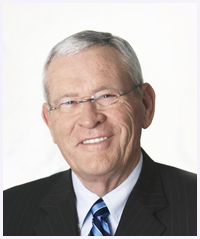Is AT&T's Whitacre playing politics with IPTV for low income households?


In fact, AT&T Chief Executive Edward Whitacre told the Detroit Economic Club yesterday that as part of the build out of the bandwidth-enhancing Project Lightspeed initiative, within the next three years the network will reach 19 million homes, of which 5.5 million will be low income.
There's two ways to interpret this information.
One, AT&T making a special effort to do this because they are good corporate citizens. Yes, and as the old song goes, "everything is beautiful, in its own way."
Here is a more likely scenario.
There is substantial political capital inherent in helping low-income neighborhoods overcome the digital divide. It just so happens that many of these places are served by House of Representatives Members who AT&T perceives to be adversaries when it comes to net neutrality laws and other regulations.
There may be a political calculus at work- show that we are not heartless broadband monopolists who would fee competitors and you- to death. Instead, show that we care about the betterment of society.
And the fact that Whitacre would talk about IPTV for low-income households at a forum in one of the nation's most economically distressed larger cities that is a base of support for the type of politician who is in favor of net neutrality- what does that tell you?